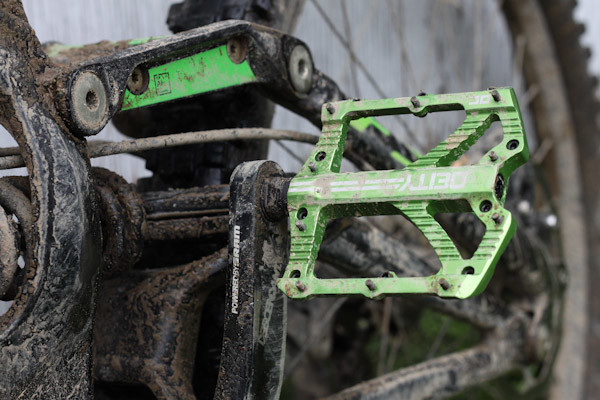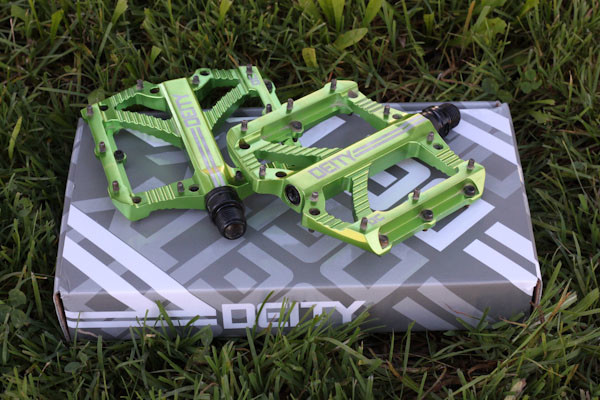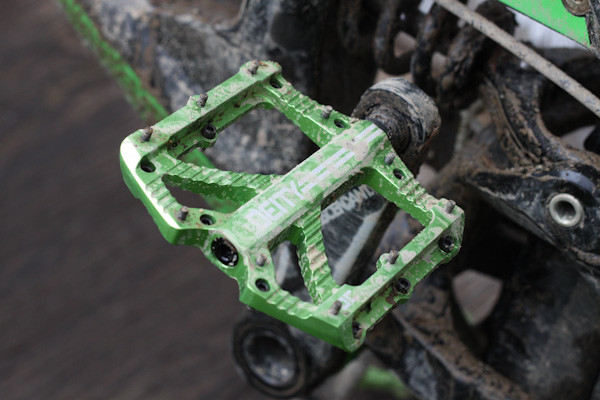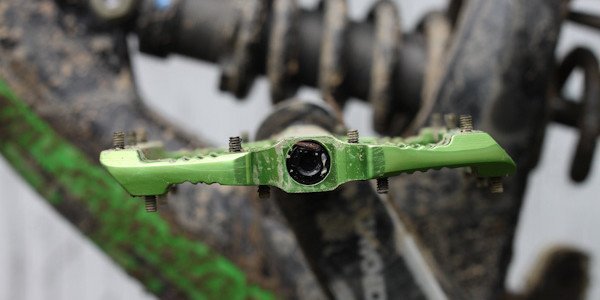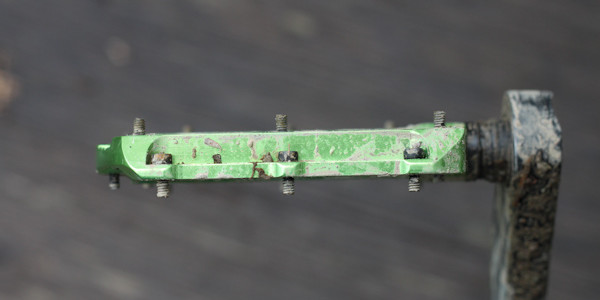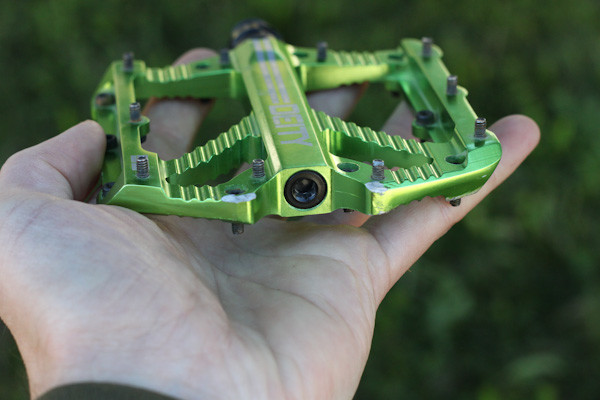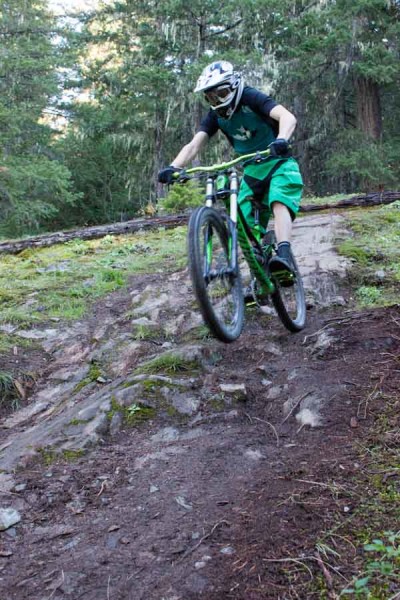While they seem like a relatively simple component pedals are one of the crucial contact points between you and your bike. Since every rider has their own idea of how they want flat pedals to feel and perform there are tons of options out there, all vying to suit your soles with uniquely shaped bodies, varying degrees of concavity, and different pin configurations.
My downhill bike was recently adorned with a set of Deity’s Bladerunner pedals to test out, which proved to be a great model for those who like ‘em large and grippy. These pedals tick all the usual boxes for flat riders- they’re big and comfortable underfoot, the thin bodies keep things light and reduce pedal strikes, and they offer plenty of grip. Read past the break for the full specs and ride report…
The Bladerunner Pedals are extruded and machined from 6061 T6 Aluminum, and are Deity’s largest and thinnest model to date. Their sizeable platforms measure 103x100mm, and are just 11mm thick. The bodies feature a lot of machining with grooves to enhance traction and cut-outs to shave grams and prevent mud buildup.
Chromoly axles spin on sealed bearings and DU bushings, which are positioned to optimally distribute load forces. The pedals can be installed/removed with either an 8mm allen key or 15mm pedal wrench, and they’re fully serviceable without removing them from your bike. Accordingly, Deity sells full rebuild kits for the Bladerunners. A pair hits the scales at 370g.
As for looks, I waffle between the aesthetics of heavily machined parts versus smoother designs but I did like the appearance of the Bladerunners, especially due to the candy color anodizing.
On first contact the Bladerunners’ bodies felt promising- they’re very supportive underfoot, not only front-to-back but width-wise as well. My size 9 feet are a bit wide, but still had some wiggle room on these flats.
After my first run, it was evident how much grip the 10 pins per side provide, as I pretty well had to peel my feet off the pedals! (I left all the pins in place for my test, and I ride in Five Ten shoes). If you prefer having the ability to shift your feet around while you ride, you’d want to grind down or pull a few pins- with the full set in place I had to lift my foot to reposition it.
While the shape of some pedals dictates where exactly your feet rest, the Bladerunners’ platforms are pretty forgiving if you place a foot a little crooked, or inboard/outboard. There is no concavity at all in the platforms but they do feature a subtle concave pin profile. I barely noticed any curve, and consequently found the pedals were still comfortable when my foot landed a bit off-center. For riders who like a noticeable bend underfoot, you won’t find it here.
Throughout several sloppy days in the Whistler Bike Park mud buildup was never a problem, and both bodies are still spinning smoothly. After tagging the right pedal pretty hard twice, I scraped a chunk off the anodizing, but otherwise the body held up fine. In fact, even the pin that got clipped remained intact. I did manage to put a slight bend in both spindles already. Somehow at sub-150lbs I usually manage to bend pedal spindles, but I was a bit disappointed it happened so fast with the Bladerunners.
The Bladerunners are a comfortable flat pedal that could just as easily be enjoyed for trail riding, but I’d say the large, flat platforms make them most ideal for downhill. If you plant a foot here and there, it’ll be easy to get back on their big bodies, and there’s gobs of grip to keep you there ‘till the bottom. Unfortunately it didn’t take long to tweak the spindles, so if you’re prone to warping pedals you may want to consider something with beefier internals.
